
Το να καλωσορίσετε στο σπίτι ένα νέο κουτάβι φέρνει μερικές σημαντικές αλλαγές στη ζωή σας και στη ζωή του νέου σας κατοικίδιου. Για να σας βοηθήσουμε με αυτό, έχουμε συγκεντρώσει έναν γρήγορο οδηγό με τα κύρια πράγματα που πρέπει να έχετε κατά νου κατά τις πρώτες μέρες του κουταβιού σας στο σπίτι.
1.- ΣΤΟ ΣΠΙΤΙ
Διατηρήστε το σπίτι σας ασφαλές και
προστατευμένο
αφαιρώντας πράγματα που μπορεί να
σπάσουν, να μασηθούν ή να βλάψουν το
κουτάβι σας και αποφύγετε να αφήνετε
προϊόντα καθαρισμού κοντά του. Εάν έχετε
έναν ασφαλή κήπο, μπορείτε να αφήσετε
το κουτάβι σας να τον εξερευνήσει υπό
την επίβλεψή σας. Διαφορετικά, θα πρέπει
να κλείσετε τα παράθυρα και τις πόρτες
για να αποφύγετε τη διαφυγή.
Είναι
πολύ σημαντικό όλοι στο σπίτι σας να
συμφωνούν για το τι μπορεί και τι δεν
μπορεί να κάνει το κουτάβι. Για παράδειγμα,
αποφασίστε αν επιτρέπεται στο κουτάβι
σας να μπει στα υπνοδωμάτια ή να πηδήξει
σε κρεβάτια και καναπέδες. Αυτοί οι
κανόνες πρέπει να επιβάλλονται από
όλους, χωρίς εξαίρεση. Εάν όχι, το κουτάβι
θα δυσκολευτεί να μάθει τι μπορεί και
τι δεν μπορεί να κάνει και μπορεί ακόμη
και να επιδείξει κυριαρχία σε πιο
ανεκτικά μέλη του νοικοκυριού. Το κουτάβι
σας πρέπει να έχει τη δική του θέση στο
σπίτι όπου μπορεί να ξεκουραστεί άνετα
στο δικό του κρεβάτι.
Τα παιδιά στο
σπίτι μπορεί να έρθουν να αναπτύξουν
μια πολύ ιδιαίτερη σχέση με το κουτάβι,
αλλά για να το πετύχουν αυτό, τα παιδιά
πρέπει να αναγνωρίσουν, να αποδεχτούν
και να σεβαστούν το κουτάβι ως ένα
ζωντανό ον που έχει συναισθήματα και
δεν πρέπει να του συμπεριφέρονται σαν
παιχνίδι. Αντί να έχετε ξεχωριστούς
χρόνους παιχνιδιού, είναι καλή ιδέα να
συμπεριλάβετε το κουτάβι στο παιχνίδι
των παιδιών. Πρέπει επίσης να μάθετε
στο κουτάβι σας να μην μασάει. Είναι
καλύτερο να χρησιμοποιείτε ειδικά
παιχνίδια για το κουτάβι σας, έτσι ώστε,
κατά τη διάρκεια του παιχνιδιού, να
μπορεί να μασάει τα δικά του παιχνίδια,
αλλά ποτέ τα χέρια ή τα πόδια κανενός.
Εάν συμβεί αυτό, πρέπει να τιμωρήσετε
το κουτάβι σας διακόπτοντας τον χρόνο
παιχνιδιού μέχρι αργότερα και λέγοντάς
του κατηγορηματικά «όχι». Το κουτάβι
θα μάθει γρήγορα πώς να συμπεριφέρεται,
επιτρέποντάς σας να αποφύγετε προβλήματα
στο μέλλον.
2.- ΣΤΗ ΒΟΛΤΑ
Το να βγάλετε το κουτάβι σας έξω για
μια βόλτα είναι θεμελιώδες για τη
διανοητική και σωματική του ανάπτυξη.
Είναι απίστευτα σημαντικό να αλληλεπιδρά
και να παίζει με άλλα σκυλιά, ζώα και
ανθρώπους. Το κουτάβι σας χρειάζεται
μια σταθερή ρουτίνα και πρέπει επίσης
να μάθει την υπομονή από νωρίς. Για να
το πετύχετε αυτό, πρέπει να αφιερώσετε
χρόνο για να διδάξετε το κουτάβι σας.
Για παράδειγμα, μπορείτε να τον επαινέσετε
χαϊδεύοντάς τον και προσφέροντάς του
ως ανταμοιβή μια λιχουδιά ή μπισκότο
για μικρό σκύλο, ώστε να μάθει ότι η καλή
συμπεριφορά κερδίζει ανταμοιβές.
Η
εκπαίδευση του κουταβιού σας είναι πολύ
σημαντική και πρέπει να φροντίσετε να
αφιερώσετε τον χρόνο σας σε αυτό. Μπορείτε
ακόμη και να προσλάβετε έναν εκπαιδευτή
για να σας βοηθήσει.
3.- ΥΓΕΙΑ ΚΑΙ ΥΓΙΕΙΝΗ
Η τακτική περιποίηση είναι μια βασική
συνήθεια, καθώς θα προστατεύσει το δέρμα
του κουταβιού σας και θα του δώσει ένα
υπέροχο λαμπερό τρίχωμα, ενώ θα σας
δώσει επίσης την ευκαιρία να εντοπίσετε
τυχόν παράσιτα ή δερματικά προβλήματα.
Όχι μόνο αυτό, αλλά η περιποίηση θα σας
βοηθήσει επίσης να δημιουργήσετε έναν
δεσμό με το κουτάβι σας. Στην πλειονότητα
των σκύλων αρέσει να περιποιούνται
αρκεί να το συνηθίσουν σε νεαρή ηλικία,
που σημαίνει ότι μπορεί να σας αφήσει
να βουρτσίζετε τα δόντια του με μια
ειδική βούρτσα μερικές φορές την
εβδομάδα. Για την υγεία των δοντιών,
μπορείτε επίσης να δώσετε στο κουτάβι
σας ειδικές λιχουδιές ή σκληρά κόκαλα
που βοηθούν στον καθαρισμό των δοντιών.
Πρέπει να κάνετε μπάνιο το κουτάβι σας
τουλάχιστον μία φορά το μήνα για να
διατηρείται καθαρό και να μυρίζει
φρέσκο. Για αυτό, θα πρέπει να χρησιμοποιήσετε
ειδικό σαπούνι για σκύλους, χλιαρό νερό
και πετσέτες για να στεγνώσετε τελείως
το κουτάβι για να μην κρυώσει. Συνιστάται
επίσης να βουρτσίζετε το κουτάβι σας
μερικές φορές την εβδομάδα με τη σωστή
βούρτσα για να απαλλαγείτε από το νεκρό
δέρμα και άλλα βρώμικα υπολείμματα.
Κανονίστε
ένα ραντεβού με τον κτηνίατρό σας για
να εμβολιάσετε και να κάνετε μικροτσίπ
στο κουτάβι σας. Φροντίστε να ενημερωθείτε
για το σκουλήκι και να ζητήσετε συμβουλές
σχετικά με την προστασία του κουταβιού
σας από ψύλλους και τσιμπούρια.
4.- ΔΙΑΤΡΟΦΗ
Η σωστή σίτιση είναι πολύ σημαντική
για την ευημερία του κουταβιού σας,
ειδικά όταν ακόμα μεγαλώνει, καθώς η
διατροφή παίζει θεμελιώδη ρόλο στη
βέλτιστη ανάπτυξη της φυσικής του
κατάστασης. Αρχικά, τα κουτάβια χρειάζονται
πολλά μικρά γεύματα την ημέρα, τα οποία
θα πρέπει να μειώσετε σταδιακά σε ένα
ή δύο την ημέρα. Η διανομή των γευμάτων
κατά τη διάρκεια της ημέρας βοηθά το
πεπτικό σύστημα του κουταβιού σας και
βελτιστοποιεί την πρόσληψη θρεπτικών
συστατικών. Το κουτάβι σας πρέπει να
έχει πάντα πρόσβαση σε νερό και είναι
εξίσου σημαντικό να αποφύγετε την
υπερβολική σίτιση καθώς αυτό μπορεί να
προκαλέσει παχυσαρκία.
Είναι σημαντικό
να επιλέξετε μια καλή τροφή που έχει
φτιαχτεί ειδικά για κουτάβια και να
δίνετε μόνο την ποσότητα τροφής που
αντιστοιχεί στο βάρος του κουταβιού
σας καθώς μεγαλώνει.
Ένας από τους
στόχους της καλής διατροφής είναι να
παρέχει ενέργεια, αλλά είναι επίσης
θεμελιώδης για την ανάπτυξη και τη
συντήρηση των κυττάρων του σώματος.
Αυτό βοηθά στην πρόληψη ασθενειών που
σχετίζονται με την ηλικία στο μέλλον,
καθώς και προβλημάτων που σχετίζονται
με την πέψη, το δέρμα, τα δόντια και τις
αρθρώσεις του κουταβιού σας. Μια υγιεινή
τροφή που ικανοποιεί τις διατροφικές
ανάγκες του κουταβιού σας θα του δώσει
το καλύτερο ξεκίνημα στη ζωή.
Κανονικά,
η ξηρή τροφή συνιστάται έναντι άλλων
τύπων τροφίμων λόγω των πολλών
πλεονεκτημάτων της. Για παράδειγμα,
είναι ευκολότερο να διατηρείτε την ξηρή
τροφή φρέσκια και αμόλυντη, είναι
ευκολότερο και πιο υγιεινό στον χειρισμό
και η σκληρή της σύσταση είναι καλύτερη
για την οδοντική υγιεινή καθώς το μάσημα
της κροκέτας καθαρίζει τα δόντια και
τα ούλα του κουταβιού σας.
Απλώς θυμηθείτε: το πιο σημαντικό πράγμα που μπορείτε να δώσετε στο κουτάβι σας είναι η αγάπη και η προσοχή σας. Συγχαρητήρια για τον ερχομό του νέου σας φίλου!
#Ευχαριστούμε την Summit10 για το άρθρο στο blog τους.


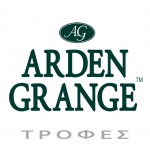


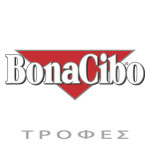
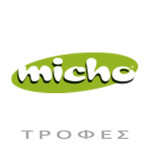



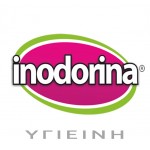


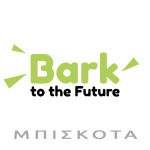

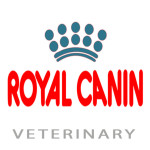
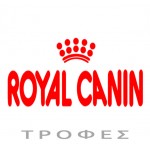


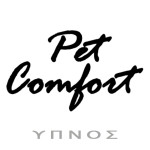




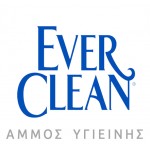
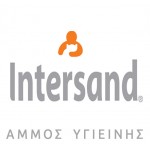



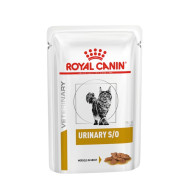


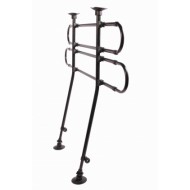

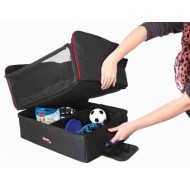
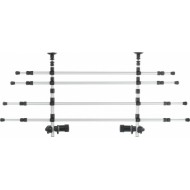
Leave a Comment